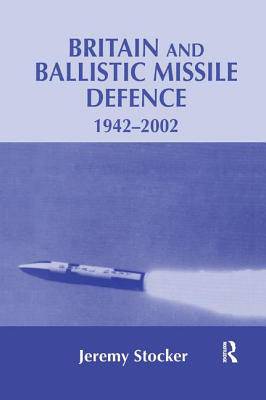
Door een staking bij bpost kan je online bestelling op dit moment iets langer onderweg zijn dan voorzien. Dringend iets nodig? Onze winkels ontvangen jou met open armen!
- Afhalen na 1 uur in een winkel met voorraad
- Gratis thuislevering in België vanaf € 30
- Ruim aanbod met 7 miljoen producten
Door een staking bij bpost kan je online bestelling op dit moment iets langer onderweg zijn dan voorzien. Dringend iets nodig? Onze winkels ontvangen jou met open armen!
- Afhalen na 1 uur in een winkel met voorraad
- Gratis thuislevering in België vanaf € 30
- Ruim aanbod met 7 miljoen producten
Zoeken
Omschrijving
Britain was the first country to come under sustained ballistic missile attack, during 1944-45. Defence against ballistic missiles has been a persistent, if highly variable, subject of political policy and technical investigation ever since. The British Second World War experience of trying to counter the V-2 attacks contained many elements of subsequent responses to ballistic missile threats. After the war, a reasonably accurate picture of Soviet missile capabilities was not achieved until the early 1960s, by which time the problem of early warning had largely been solved. From the mid-1960s on, British attention shifted away from the development of the country's own defences towards the wider consequences of US and Soviet deployments. After the end of the Cold War there was renewed interest in a limited active-defence capability against Third World missile threats. This well-researched book is primarily aimed at students of post-war British foreign and defence policies, but will also be of interest to informed general readers.
Specificaties
Betrokkenen
- Auteur(s):
- Uitgeverij:
Inhoud
- Aantal bladzijden:
- 304
- Taal:
- Engels
- Reeks:
Eigenschappen
- Productcode (EAN):
- 9780714685748
- Verschijningsdatum:
- 14/06/2017
- Uitvoering:
- Paperback
- Formaat:
- Trade paperback (VS)
- Afmetingen:
- 156 mm x 233 mm
- Gewicht:
- 559 g

Alleen bij Standaard Boekhandel
+ 105 punten op je klantenkaart van Standaard Boekhandel
Beoordelingen
We publiceren alleen reviews die voldoen aan de voorwaarden voor reviews. Bekijk onze voorwaarden voor reviews.











